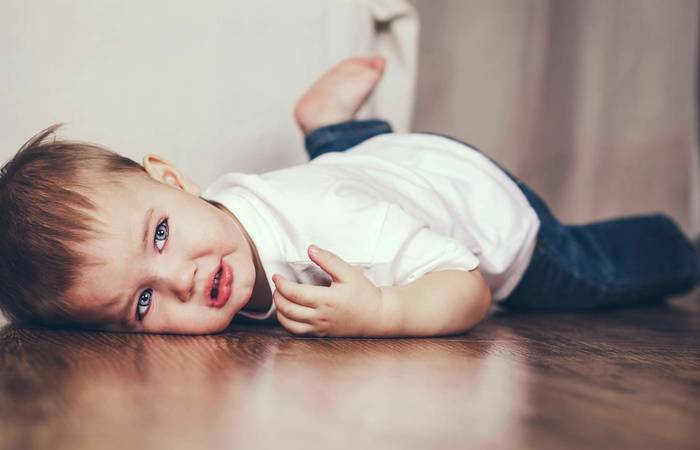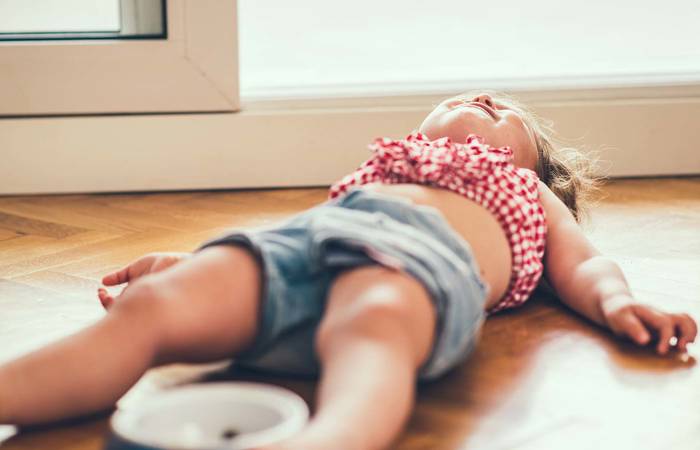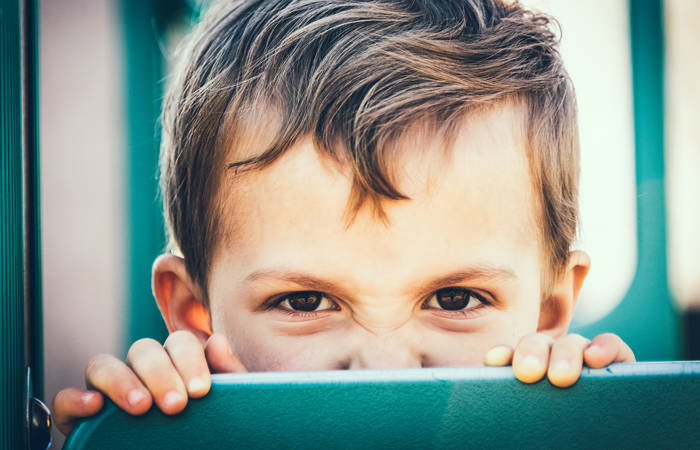Like what you see?
Sign up to receive more free parenting advice.
Thank you for subscribing to our newsletter!
Child Development
Video Gallery
See all videosHow to not yell at your children - Dr Justin Coulson
Dr Justin Coulson is a three-time bestselling author, a TEDx speaker, and one of Australia's most popular relationships and parenting experts. In this video he looks at five reasons why we yell and five ways to stop yelling at your children.
How to not yell at your children - Dr Justin Coulson
Dr Justin Coulson is a three-time bestselling author, a TEDx speaker, and one of Australia's most popular relationships and parenting experts. In this video he looks at five reasons why we yell and five ways to stop yelling at your children.
Dr Justin Coulson is a three-time bestselling author, a TEDx speaker, and one of Australia's most popular relationships and parenting experts. In this article he looks at five ways to stop yelling at your children.
Nearly all parents yell. It’s a fact. And in most homes, yelling usually occurs at peak times.
Here’s an example: The morning rush? You need to get out the door fast. Your child is dawdling. Perhaps they’re still in their pyjamas and you have three minutes – THREE MINUTES!!! – to get out the door before you’re officially late. Again.
She hasn’t eaten breakfast. She can’t find her favourite toy – and nothing is going to happen until then.
The words escape your mouth, at max volume… “Stop being so ridiculous and EAT YOUR BREAKFAST NOW!”
Here’s another example: The evening sleep routine? You have tried to put your little guy to bed for 45 minutes. You are exhausted. The house is still a mess. You have another child who also requires focus. You really, REALLY want to spend some quality time with your partner (or with your favourite TV show or novel). And he just won’t go to sleep.
The words again escape your mouth, at max volume… “JUST GO TO SLEEP!”
Before we talk about your child, let’s talk about you.
Five Reasons Why We Yell
Having a child will try us in ways we could never have imagined. It is just so hard. Exhausting. Emotionally depleting.
We seem to be most likely to yell at those times when we are most exhausted. I know that people say that they need to yell so their child won’t run on the road. Fair enough. But most yelling happens at other times – like when children don’t listen, don’t do as they’re asked, treat their sibling badly, won’t eat their food, won’t go to bed, wet the bed, and so forth.
Studies highlight that our willpower is lowest when we are tired, stressed, or mad. That means that at the very time we need to be at our best (when our child is challenging), we are most likely to be at our worst because of our fatigue. And that is when we are most likely to yell… and not when they are about to run onto the road or otherwise endanger themselves.
We also yell for some reasons that are generally unspoken, but are nevertheless true:
First, we yell because we can. The truth is we wouldn’t yell if someone was watching us. Or if it was another adult. We yell because they can’t yell back without getting in trouble. It’s a power thing.
Second, we yell because we think they’re ticking us off on purpose. It sometimes feels as though they woke up in the morning with a plan to destroy our lives. They didn’t though. They’re just kids. They’re figuring it out bit by bit and making inconvenient mistakes.
Third, we yell because it gets an instant result. It can be an ugly result. But it’s a quick result. The trouble is that sometimes it doesn’t get a result. And then where do we go?
Fourth, we yell because we don’t have a better solution. When you haven’t taken piano lessons, you play chopsticks on the piano. It’s all you know. It’s the same with yelling. Without considered practice at developing skills we cannot do better.
Fifth, we yell because we were yelled at. Yelling is a learned behaviour. It’s a habit. And we can stop it. But we need to be intentional about it.
Studies have shown that when parents yell at their children as their go-to method of discipline, there is an increase in behavioural problems, an increase in stress, anxiety, and depression. Children who are yelled at also have a higher susceptibility to developing psychological problems and lower self-esteem for the child down the line. The fight-flight-freeze response to stress and trauma gets activated when we yell at our children.
So how do we respond to a challenging child in a constructive way when we are tired, stressed, mad, and completely spent? What do we do when yelling seems like the only viable alternative?
When we yell, we do it to get a fast result. But it often backfires spectacularly. Our children get scared. They make mistakes. They become emotionally flooded. They can’t think clearly.Dr Justin Coulson
Stay up to date with the latest news and articles from First Five Years
Thank you for subscribing to our newsletter!
6 Ways to Stop Yelling
Here are 5 suggestions to stop yelling AND have your child listen to you when you speak:
1. Use a soft voice
Unless your child has a physiological hearing abnormality, your child is not deaf. To test this, stand at the door to their room and whisper, “Would you like ice-cream?” They’ll hear you.
Think back to that time you attempted to sneakily eat a chocolate bar while you were taxiing your child to and from school or an event. They heard the crinkle of the wrapper, didn’t they, even though you thought you were being quiet? When your child is not responding, lowering your voice and speaking softly actually makes children stop what they’re doing and listen closely. Yelling makes people turn away and tune out.
If your child still doesn’t respond, walk to her and crouch down. Look into her eyes. Hold her hands. Speak softly and say, “I just said something/asked you something. Did you want me to say it again or would you like more time to think about it?” Then wait.
2. Stay calm
I know. You’re running late. Your child is being unkind to his brother. It’s chaos. You’re not coping. They’re not listening. All you have left is to yell.
So, you yell… “CALM DOWN!!!”? Have you noticed that our “Calm Down” command is typically anything but calm?
This matters because our emotions are contagious. Your child will catch your crazy. They’ll catch your chaos. They’ll catch your cranky.
But they’ll also catch your calm.
How do you stay calm when you are screaming on the inside?
A few tips. First, remember that your child doesn’t understand time the way you do. He doesn’t realise that “hurry up” is for a reason. He wants to do what he wants to do. Second, your child may be struggling (with a chore, with a sibling, or with going to the toilet or getting moving). Yelling won’t help. It will only increase fear and anxiety. It will actually make things worse, not better. Remembering your child’s lack of verbal capacity, emotional regulation, and behavioural regulation can be helpful in staying calm and recognising they need help, not hurting. And third, remind yourself: “Calm and kind.” Say it again and again. Make it your mantra.
3. Remember, fast is slow and slow is fast
When we yell, we do it to get a fast result. But it often backfires spectacularly. Our children get scared. They make mistakes. They become emotionally flooded. They can’t think clearly.
Much better to stay calm, speak softly, be patient and kind, and watch how they respond when they feel our desire to work with them rather than do things to them. Ironically, trying to go slowly makes things go faster. It builds the relationship rather than rupturing it.
4. Focus on helping, not hurting
To extend the last idea, a soft, relationship-building approach usually makes it seem like we’re trying to help. A shouty, yelling approach makes it feel like we’re trying to hurt our child.
If we see a child struggling, it’s so much better to try to help them in their difficulty or challenge. It might be something they’ve needed help with before. That’s ok. Sometimes it’s hard to learn all of these life lessons. Helping is a more useful approach.
5. Don’t get furious, get curious.
It can take a whole lot of self-control to catch yourself from immediately yelling to actively choosing not to. But it’s really helpful to remember that the goal is to connect with our child, before we correct them. They aren’t going to be in any better position to hear what we are trying to tell them if we immediately jump to yelling to them. Think of yourself in a work or social situation; if your boss or friend went straight to yelling demands at you when you were having a bad day, rather than taking some time to find out how you were doing - how would you feel? Children are the same, they are people too and they deserve our patience and respect. Taking the time to connect with our children, to see where they are at and meet them there before we rush on at them with our own agendas and ideas, is going to be way more effective for understanding them.
6. Imagine I’m in the room.
The reality is that we don’t lose the plot when we have an audience. Imagine someone important is watching you. Do you yell? Or do you show gentleness and kindness.
Our relationship with our children should be built on connection rather than correction and direction. This means new habits, new approaches, and newfound levels of patience. But as we put the relationship first, speak softly, stay calm, go slow, focus on helping rather than hurting, and get curious about our children’s struggles, we will open up new ways to make our family happier – and quieter.











